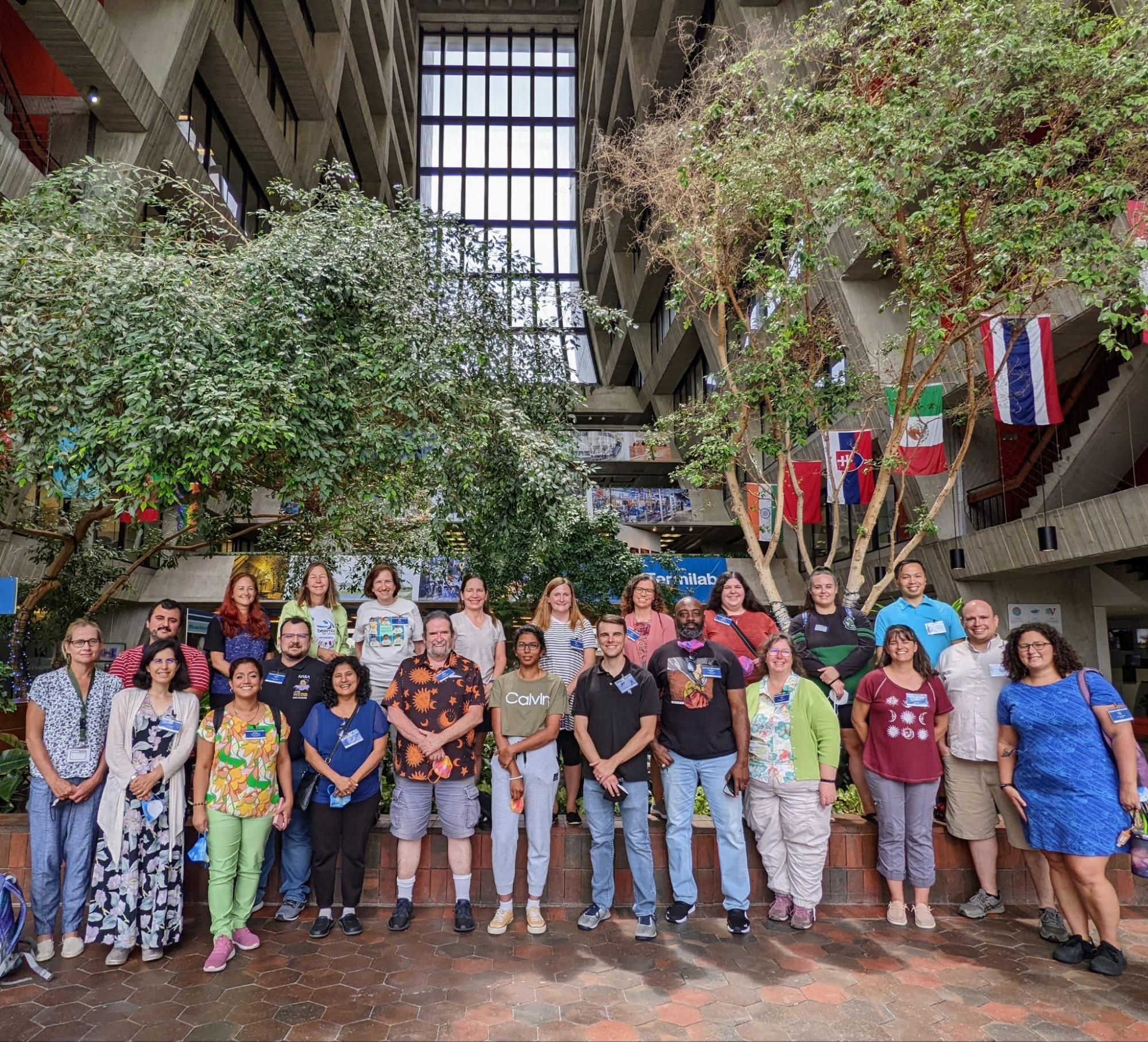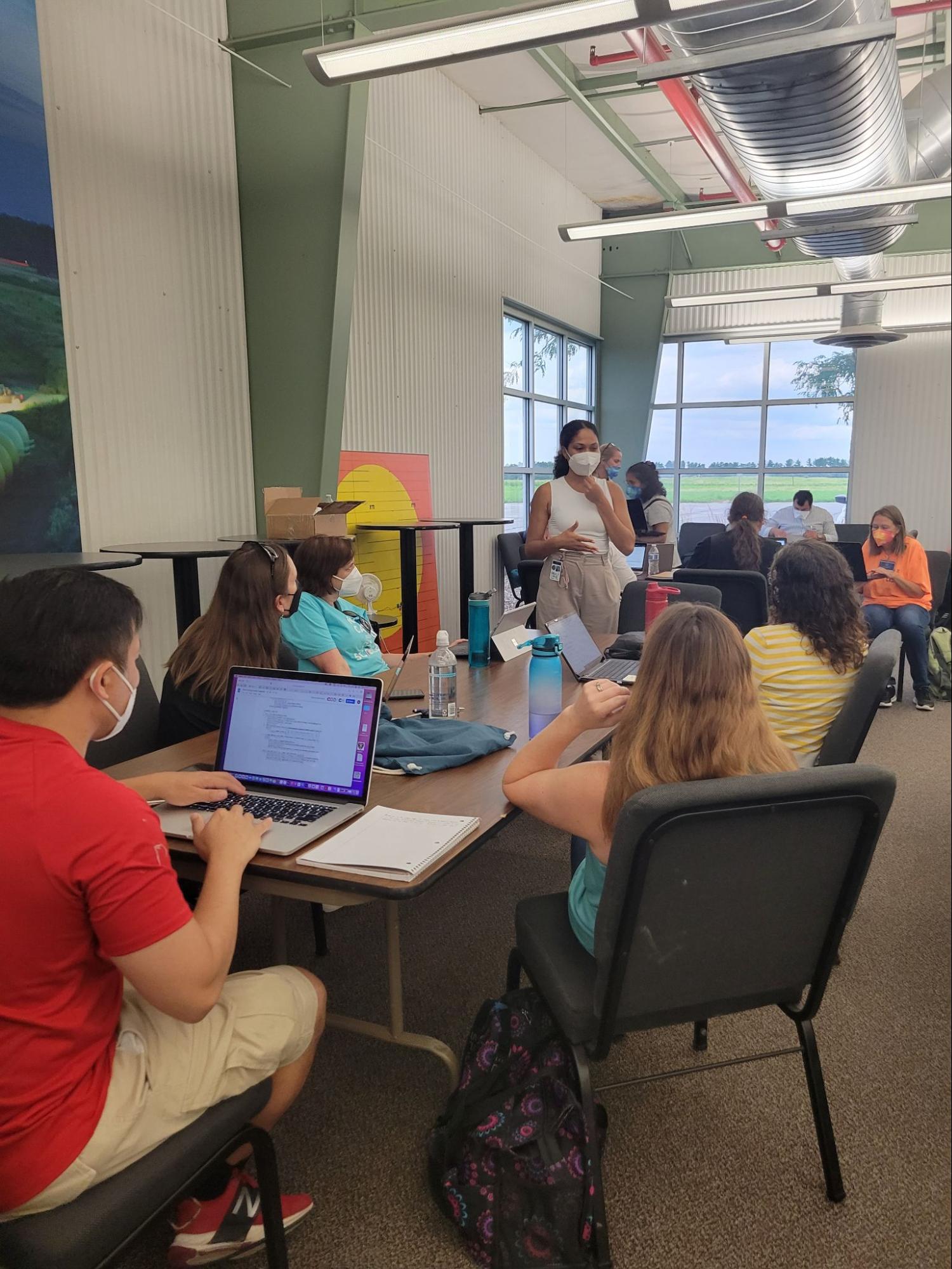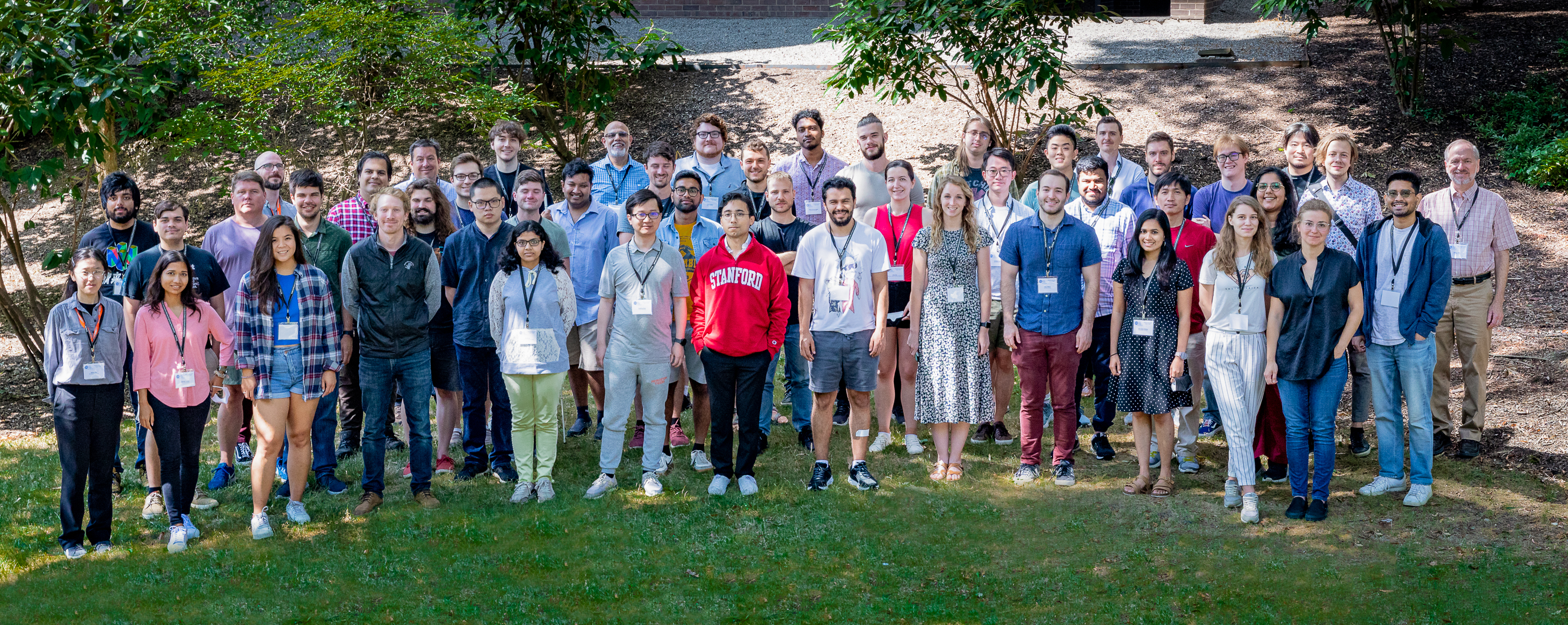On a warm, sunny week this past August, 50 early-career researchers gathered at Princeton University’s physics department, eager to learn about advanced software techniques. They were there for the fourth ever Computational and Data Science School for High Energy Physics (CoDaS-HEP) summer school, and the first one to be put on since the start of Covid halted nearly all in-person gatherings. Students with a range of expertise, from undergraduate to graduate to post-doctoral researchers, had all gathered with the intention of learning advanced software techniques.
In the span of five days, the CoDaS-HEP participants attended a series of lectures with experts in the software field. Together, they covered topics ranging from tackling problems in machine learning to optimizing code. The CoDaS-HEP summer school is just one of the ways in which the IRIS-HEP institute is working to not only train future generations of physicists to have proficiency in software, but also create connections among them.
“CoDaS-HEP has the advantage of being a place where we can talk about the things people need for research software,” said Peter Elmer, senior research physicist at Princeton and principal investigator and executive director at IRIS-HEP. “But it also brings together people who are interested in those kinds of things, so they actually get to know one another even though they may be scattered in many different universities.”
CoDaS-HEP
The idea to create a software training camp began around a decade ago during a particle physics community planning exercise. Elmer said, he and others realized software and computing would be necessary to the functioning of upcoming high energy physics facilities. For instance, with the High-Luminosity Large Hadron Collider, which will serve as an upgrade to the largest particle collider in the world, there will be more data to process and new challenges to overcome.
Sudhir Malik, professor of physics at the University of Puerto Rico and training, education and outreach coordinator for IRIS-HEP, said all these new advances mean the field will need more people who are not just aware of software advances, but capable of solving problems that crop up. “There’s a lot of technical software know-how that needs to be transferred to the new people who come into the field,” Malik said. “And this should be done in a coordinated and organized way.”
However, Elmer said they couldn’t expect universities to be able to just incorporate all this necessary know-how on software into graduate curriculums. “But we could take graduate students from multiple universities, just bring them together and run a summer school,” Elmer said. And so, the CoDaS-HEP training was launched in 2017.
At the 2022 CoDaS-HEP summer school, Kilian Lieret, a postdoctoral researcher at Princeton University, gave two lectures. One of his talks, titled “Everything You Didn’t Know You Needed” provided the students with small life hacks and tips to make working with software easier. Lieret said he got good feedback from students, even those who had been in the field for years or a decade, who hadn’t previously been aware of the little ways their work with software could be simplified.“I’ve never gotten a talk like that,” Lieret said. “And I would’ve always wanted to know about all these little things.”
Lieret said in addition to the lectures, the conference provided time for participants to mingle and chat. “It just all created an atmosphere where you’d easily get to know each other and have fun talking,” he said.
Malik agrees that the social aspect of the training camp is integral to the success of CoDaS-HEP. It’s one of the reasons that the summer program wasn’t turned into a virtual event during the years of lockdowns. “I think the best part of the school is that students get to know each other and they build networking,” Malik said. “It’s not just learning and going back home.”
Coding Camp 2

Group Picture in Wilson Hall during Coding Camp at Fermilab, July 2022 Photo credit: Danelix Cordero - CROEM Mayaguez and QuarkNet
In late July of 2022, a different summer camp was underway at the Fermi National Accelerator Laboratory, or Fermilab, in Illinois. Put on as a collaboration between QuarkNet – an outreach program aimed at high school physics teachers – and IRIS-HEP, Coding Camp 2 provided science teachers with lectures on software development delivered by experts in the field.
For years, QuarkNet had been putting on a virtual, introductory workshop called Coding Camp. Adam LaMee, a physics instructor at the University of Central Florida and a teaching fellow for QuarkNet, said the original Coding Camp allowed the organization to reach a wide pool of teachers to give elementary coding experience. “And then that developed into this growing body of teachers that said, ‘hey, we want to learn more,’” he said. “That was right at the time that IRIS-HEP came in and said, ‘why don’t we help you do more?’”
While many programs consider how to properly prepare high school students for data science careers, not so many organizations are focused on how to get teachers familiar with the technology so they can train the next generation. With the additional funding from IRIS-HEP, QuarkNet was able to welcome 24 teachers this past summer and give them a more advanced exposure on how to use coding to analyze datasets. “IRIS-HEP has really helped us run with that and expand the offerings considerably,” said LaMee.

Teachers attending Coding Camp in CDF Big Room at Fermilab, July 2022 Photo credit: Danelix Cordero - CROEM Mayaguez and QuarkNet
Scarlet Norberg, a former post-doctoral student of Malik’s at University of Puerto Rico, dropped by Coding Camp 2 this past summer to give an informal talk on how her own teachers helped her get to her own point in her career as a data scientist. “Having these teachers come to the lab and learn some of what we’re doing can then help them encourage students to go into the field,” Norberg said.
LaMee said he’s looking forward to bringing a new set of teachers to Fermilab for another Coding Camp 2 this coming summer. Elmer and Malik said they’re already accepting applications for the 5th CoDaS-HEP summer school in July at Princeton University. Ultimately, Elmer said, CoDaS-HEP is just one step in a longer progression toward training people to facilitate research through basic programming. After a student spends a summer learning, they’ll go back and write relevant software themselves for the particle physics experiment they’re working on, Elmer said. “The school is part of a bigger picture of how to bring people along to the point where they’re competent and enabling science through software.”
